Lisa Dougherty Interviewed on Never Too Late for Fitness Podcast with Phil Faris
MFN founder Lisa Dougherty was recently interviewed by Phil Faris, host of the Never Too Late for Fitness podcast. Listen below:
Description from Never Too Late for Fitness Podcast:
Lisa Dougherty is a fitness industry pioneer, a personal trainer as well as CEO of Medical Fitness Network and President of Medical Fitness Education Foundation.
Lisa graduated from the University of California, Irvine’s Fitness Instructor Program, and went on to get her Certified Personal Trainer and Health Coach Certifications through the American Council on Exercise. She has many specialty certifications to work with those with medical conditions, post-surgical/rehab as well as pre-& postpartum fitness.
Lisa founded Whole Body Fitness in 1999 and has helped many people of all ages achieve their fitness goals. Lisa provided volunteer service as the President of the OC Nutrition & Fitness Council, a nonprofit organization, overseeing the organization’s mission and monitoring nutrition programs at schools in Orange County.
Lisa has been recognized as a fitness leader several times including Personal Fitness Professional Magazine naming her a Trainer of the Year Finalist in 2016 and finalist for the 2015 Trailblazer Award. She was also a 2016 finalist for the White House Champion of Change.
As impressive as these accomplishments sound, the projects Lisa is working on now promise to be real game changers in the medical fitness arena.
During the interview Lisa shares:
- How the Medical Fitness Network connects the community to fitness, wellness, and allied health professionals to maximize quality of life.
- Why people with medical conditions and chronic diseases need specialized fitness and health care.
- What inspired her to start the MFN.
- How MFN helps nonprofit medical and health organizations better serve their members.
- Why top medical, wellness and fitness experts volunteer their time and experience to help MFN achieve their mission.
- How MFN provides education to prepare professionals to serve specialized populations.
- What her next projects are as well the exciting possibilities for MFN and the medical fitness marketplace.

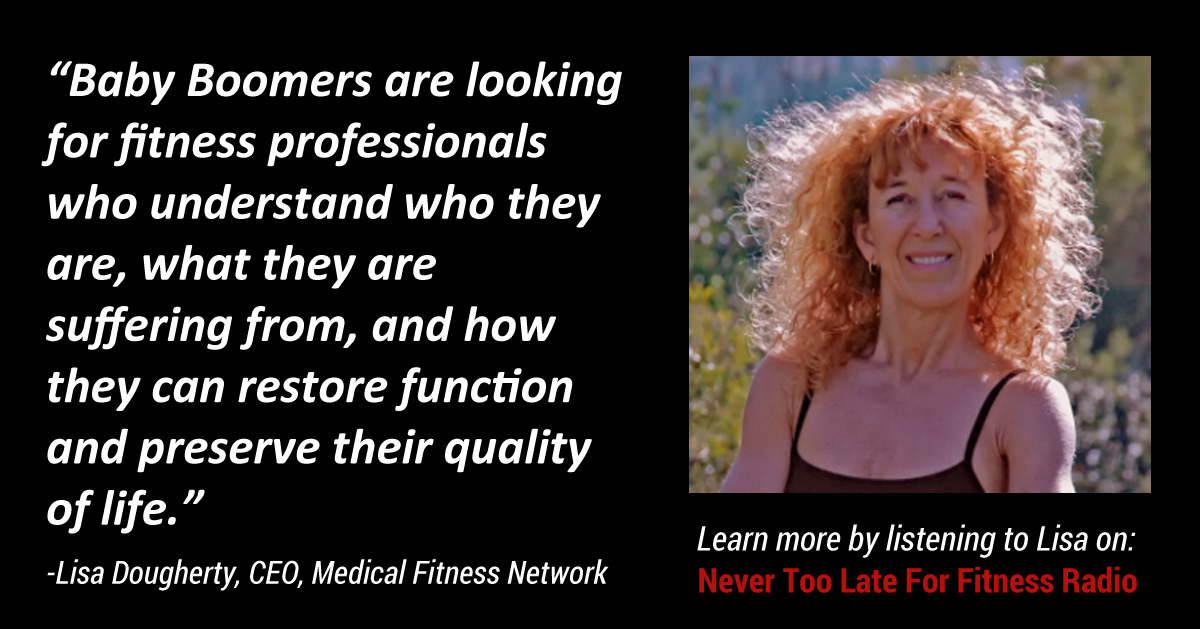

 There are 3 million breast cancer survivors in the United States today. Survivorship is considered to be from the time that one is first diagnosed to many years later. Fitness professionals are uniquely positioned to help survivors regain control over their mind and body through a well thought out, systematic and progressive exercise program.
There are 3 million breast cancer survivors in the United States today. Survivorship is considered to be from the time that one is first diagnosed to many years later. Fitness professionals are uniquely positioned to help survivors regain control over their mind and body through a well thought out, systematic and progressive exercise program.

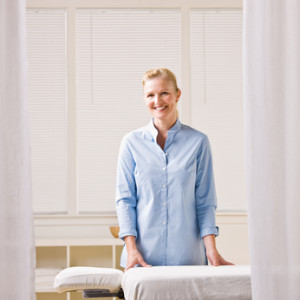 A woman who has been through breast cancer surgery, whether it’s a simple lumpectomy or a radical double mastectomy, emerges with a body that is fundamentally different from the one she began with. Many women struggle with body image issues following surgery. Breasts can help define a woman’s femininity, and to lose part or both of them can change how she feels about herself as a person. One of the most precious gifts massage therapy can give is a time of intimate non-sexual touch during which the whole goal of the session is to focus on how wonderful the client’s body can feel. Time spent in the simple enjoyment of physical touch can go a long way in the journey toward self-acceptance and the joy of being alive.
A woman who has been through breast cancer surgery, whether it’s a simple lumpectomy or a radical double mastectomy, emerges with a body that is fundamentally different from the one she began with. Many women struggle with body image issues following surgery. Breasts can help define a woman’s femininity, and to lose part or both of them can change how she feels about herself as a person. One of the most precious gifts massage therapy can give is a time of intimate non-sexual touch during which the whole goal of the session is to focus on how wonderful the client’s body can feel. Time spent in the simple enjoyment of physical touch can go a long way in the journey toward self-acceptance and the joy of being alive.
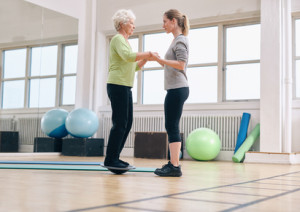 Challenges with balance and stability can happen to all of us as we get older, but is certainly more prevalent in our Parkinson’s community. Maintaining lower body strength in conjunction with balance is very important as it decreases one’s chances of falling.
Challenges with balance and stability can happen to all of us as we get older, but is certainly more prevalent in our Parkinson’s community. Maintaining lower body strength in conjunction with balance is very important as it decreases one’s chances of falling. 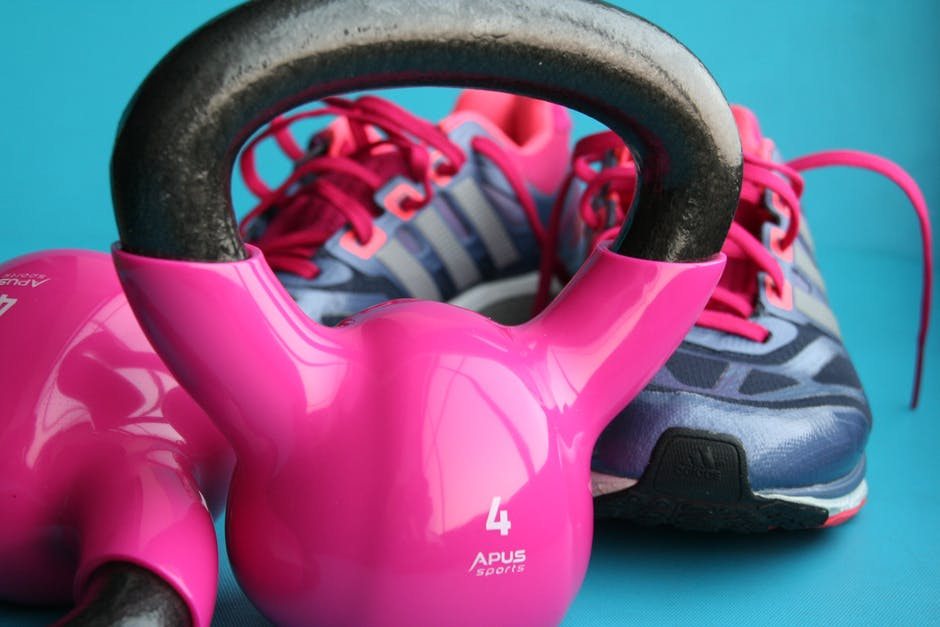
 When it comes to the body’s adaptability and recovery response, the key is not pounding your body the same way everyday. Also follow the 10% rule-never increase your program (i.e. the amount of weight lifted or miles logged) more than 10% per week. This especially true when coming off an injury. Trying to make up for lost time courts disaster. Increasing the intensity, duration or frequency of your workouts too rapidly can interfere with your body’s amazing ability to adapt, resulting in overtraining, injury or both. Also there are new technologies like the
When it comes to the body’s adaptability and recovery response, the key is not pounding your body the same way everyday. Also follow the 10% rule-never increase your program (i.e. the amount of weight lifted or miles logged) more than 10% per week. This especially true when coming off an injury. Trying to make up for lost time courts disaster. Increasing the intensity, duration or frequency of your workouts too rapidly can interfere with your body’s amazing ability to adapt, resulting in overtraining, injury or both. Also there are new technologies like the 
 Weight-bearing exercise such as walking, dancing, and running help maintain bone mass and some studies suggest they are more effective for keeping pregnancy weight gain within normal limits. As pregnancy progresses some women may not be able to continue weight-bearing exercise because of back or round ligament pain. If modifications such as wearing a belly support don’t relieve discomfort, switching to non-weight-bearing activities such as swimming, stationary biking, or other types of stationary exercise equipment is recommended.
Weight-bearing exercise such as walking, dancing, and running help maintain bone mass and some studies suggest they are more effective for keeping pregnancy weight gain within normal limits. As pregnancy progresses some women may not be able to continue weight-bearing exercise because of back or round ligament pain. If modifications such as wearing a belly support don’t relieve discomfort, switching to non-weight-bearing activities such as swimming, stationary biking, or other types of stationary exercise equipment is recommended.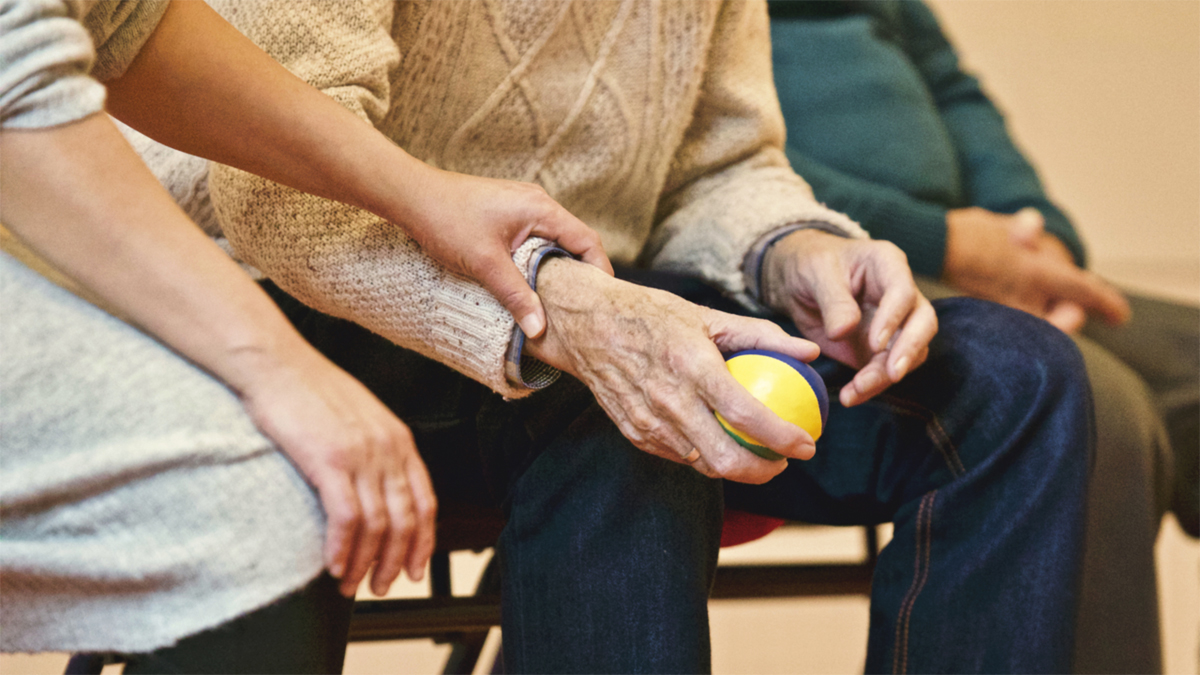
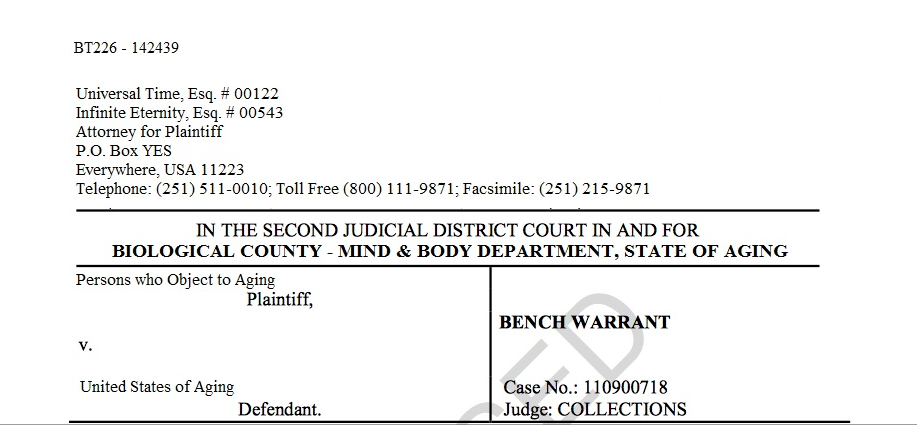
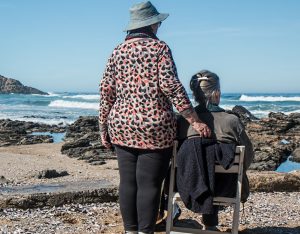 Perched on high, Honorable Time demands, “Please be seated.” Proponents of your objection turn the volume up on their snickering and clamor and the commotion and fracas crescendos until, “Order in the courtroom,” gruffly and vehemently reverberates among the walls from the booming voice of Honorable Time. Honorable Time delivers the verdict:
Perched on high, Honorable Time demands, “Please be seated.” Proponents of your objection turn the volume up on their snickering and clamor and the commotion and fracas crescendos until, “Order in the courtroom,” gruffly and vehemently reverberates among the walls from the booming voice of Honorable Time. Honorable Time delivers the verdict:
 How else can it affect us?
How else can it affect us?